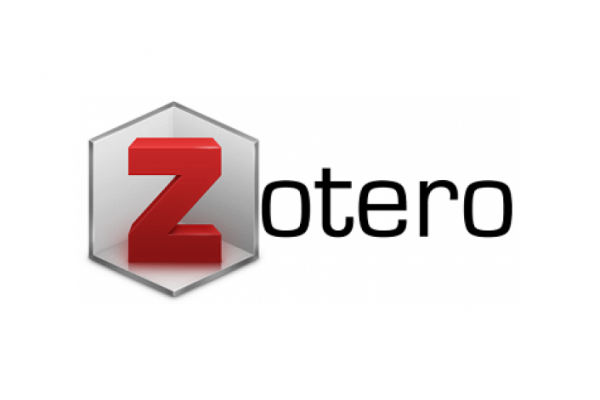Relationship between Self-Regulated Learning and Reading Skills Ability for Arabic Language and Literature Study Program Students in East Java/Al-‘Alāqah bayna Al-Ta’allum Al-Munadzam Dzātīya wa Mahārah Al-Qirā’ah ladā Thullab Qism Al-Lughah Al-‘Arabīyah wa ādābuhā bi Jāwā Al-Syarqīyah
Abstract
Keywords
Full Text:
PDFArticle Metrics
Abstract view : 361 times | PDF view : 232 timesReferences
Alsa, A. (2005). Program Belajar, Jenis Kelamin, Belajar Berdasarkan Regulasi Diri dan Prestasi Belajar Matematik pada Pelajar SMUN di Yogyakarta. Universitas Gajah Mada Yogyakarta.
Basuki, A. M. H. (2005). Pengujian Kontribusi Belajar yang Bermakna pada Kreativitas, Self Regulated Learning dan Prestasi Akademik (Studi Kasus pada Siswa Sekolah Menengah Umum di Jakarta). Proceeding, Seminar Nasional PESAT’2005.
Cheng, E. C. K. (2011). The Role of Self-regulated Learning in Enhancing Learning Performance. 17.
Cole, P. G. (2004). Teaching Principles and Practice. Prestice Hall.
Darmayanti, T. (2008). Efektivitas Intervensi Keterampilan Self-Regulated Learning Dan Keteladanan Dalam Meningkatkan Kemampuan Belajar Mandiri Dan Prestasi Belajar Mahasiswa Pendidikan Jarak Jauh. Jurnal Pendidikan Terbuka Dan Jarak Jauh, 9(2), 68–82.
Deviana, A. D., Asri, F., & Rusuly, U. (2019). Relation between Self-efficacy and Creative Thinking at Writing Skill Learning. Dinamika Ilmu, 19(2), 197–210. https://doi.org/10.21093/di.v19i2.1553
Elyana, L. (2017). Peran self regulated learning dalam pembelajaran PAUD. Temu Ilmiah X Ikatan Psikologi Perkembangan Indonesia, 59–64.
Firdaus, S., Rachman, L., & Firmansyah, M. (2020). Analisa Faktor Pengaruh Self-Regulated Learning Terkait Performance Goals terhadap Prestasi Akademik Factor Analysis of Self-Regulated Learning Related to Performance Goals on Academic Achievement. Jurnal Kedokteran Komunitas, 8(2), 94–100.
Latipah, E. (2010). Strategi Self Regulated Learning dan Prestasi Belajar : Jurnal Psikologi, 37(1), 110–129.
MĀHIR, B., ’ABDUL. (2010). Sīkūlūjiyyah Al-Qirā’ah Wa Taṭbīqātuha. Dar Al-Masīrah Li Al-Nasyar Wa Al-Tauzī’.
Maltaby, F. S, Gage Ni, Berliner, D, & D. C. (2005). Educational Psychology, an Australia and New Zealand Perspective. Brishbane.
Marcou, a, & Philippou, G. (2005). Motivational beliefs, self-regulated learning and mathematical problem solving. Pme Conference, 3, 297–304.
Marlina, M. (2017). Increasing Self Regulated Learning of Students with Special Needs Through the ILBaWEL Model. Journal of ICSAR, 72–80. https://doi.org/10.17977/um005v1i12017p072
Marwān, Sy. H. W. (2012). Marwān. Sy. H. W (2012) Al-Marja’ Fī Ta’līm Al-Lugah Al-Arabiyyah Wa Ta’līmiha. . Maktabah Al-Dar Al-Arabiyyah Li Al-Kitāb.
M.Ed., Ph.D., Universitas Terbuka, Indonesia, [email protected], Suhandoko, A. D. J., Hsu, C.-S., & Prof., National University of Tainan, Taiwan, [email protected]. (2020). Applying Self-Regulated Learning Intervention to Enhance Students’ Learning: A Quasi-Experimental Approach. International Journal of Instruction, 13(3), 649–664. https://doi.org/10.29333/iji.2020.13344a
Mulyana, E., Mujidin, M., & Bashori, K. (2015). Peran Motivasi Belajar, Self-Efficacy, dan Dukungan Sosial Keluarga Terhadap Self-Regulated Learning pada Siswa. PSIKOPEDAGOGIA Jurnal Bimbingan Dan Konseling, 4(2), 165. https://doi.org/10.12928/psikopedagogia.v4i2.4480
Olakanmi, E. E., & Gumbo, M. T. (n.d.). The Effects of Self-Regulated Learning Training on Students’ Metacognition and Achievement in Chemistry. 15.
Pratama, F. W. (2017). Peran Self-Regulated Learning Dalam Memoderatori Pembelajaran Dengan Pendekatan Saintifik Terhadap Hasil Belajar Siswa. Satya Widya, 33(2), 99–108. https://doi.org/10.24246/j.sw.2017.v33.i2.p99-108
Puspita, S. A. L., & Rustika, I. M. (2018). Peran Self-Regulated Learning dan Konsep Diri terhadap Prestasi Prestasi Universitas Udayana yang pernah menjadi Finalis Bali Pageant. Jurnal Psikologi Udayana, 5(1), 1–11.
Santrock, J, W. (2008). Psikologi Pendidikan. Kencana Prenada Media.
Slameto. (2010). Belajar dan Faktor-faktor yang Mempengaruhinya. Jakarta: Rineka Cipta. Rineka Cipta.
Supriyanto. (2015). Hubungan Antara Self-Regulated Learning dan Prestasi Akademik pada Mahasiswa Semester Pertama Prodi Psikologi Universitas Pembangunan Jaya. Jurnal Universitas Pembangunan Jaya, 2, 1–27.
Sutikno. (2015). Pengaruh Strategi Pembelajaran Mandiri, Self Regulated Learning, dan Motivasi Berprestasi terhadap asil Belajar Praktik Produktif Peserta Didik di SMK. Pascasarjana Universitas Negeri Malang.
Tahar, I. (2006). Hubungan Kemandirian Belajar Dan Hasil Belajar Pada Pendidikan Jarak Jauh. Jurnal Pendidikan Terbuka Dan Jarak Jauh, 7(2), 91–101.
Utomo, J. (2017). Membangun Harga Diri. Jakarta: Gramedia. Gramedia.
Wa Akharūn, I. W. (2014). Simmah Al-Tafāul Wa Al-Tasyāum Wa Alāqatuha Bi Al-Dāfi’ Al-Muta’llim Ladā ’Ainah Min Ṭalabah Al-Bakālūiyyā [PhD Thesis]. Risālah Li Sanās Gair Mansyūr Al-Jarā’ir.
Yulanda, N. (2017). Pentingnya Self Regulated Learning Bagi Peserta Didik Dalam Penggunaan Gadget. Research and Development Journal of Education, 3(2), 164–171. https://doi.org/10.30998/rdje.v3i2.2013
Zahary, M. (2015). Meningkatkan Prestasi Belajar Matematika Siswa Melalui Strategi Self Regulated Learning. Seminar Nasional Matematika Dan Pendidikan Matematika Uny, 24(Pasal 3), 163–168.
Zimmerman, B. J. (2002). Becoming a Self-Regulated Learner An Overview. Collage of Education, The Ohio State University, 41(2), 64–70.
Zimmerman, B. J., & Martinez-Pons, M. (1990). Student differences in self-regulated learning: Relating grade, sex, and giftedness to self-efficacy and strategy use. Journal of Educational Psychology, 82(1), 51–59. https://doi.org/10.1037//0022-0663.82.1.51
DOI: https://doi.org/10.23971/altarib.v9i2.3136
Article Metrics
Abstract view : 361 timesPDF - 232 times
Refbacks
- There are currently no refbacks.
Copyright (c) 2021 Lailatul Qomariyah, Usfiyatur Rusuly, Ade Destri Deviana3

This work is licensed under a Creative Commons Attribution-ShareAlike 4.0 International License.
Indexed By:
Tool:




Al-Ta'rib : Jurnal Ilmiah Program Studi Pendidikan Bahasa Arab IAIN Palangka Raya is published by Arabic Education Departement (PBA), the Faculty of Education and Teacher Training (FTIK),� State Islamic Institut (IAIN) of Palangka Raya in partnership with IMLA (Association of Arabic Lecturers).
Editor and Administration Address:
Arabic Education Departement (PBA), the Faculty of Education and Teacher Training (FTIK),� State Islamic Institut (IAIN) of Palangka Raya, Jalan G. Obos Komplek Islamic Centre Palangka Raya, Kalimantan Tengah, Indonesia, Postal Code 73111.Email: [email protected]/[email protected], Website: http://e-journal.iain-palangkaraya.ac.id/index.php/tarib
This work is licensed under a Creative Commons Attribution-ShareAlike 4.0 International License.



















